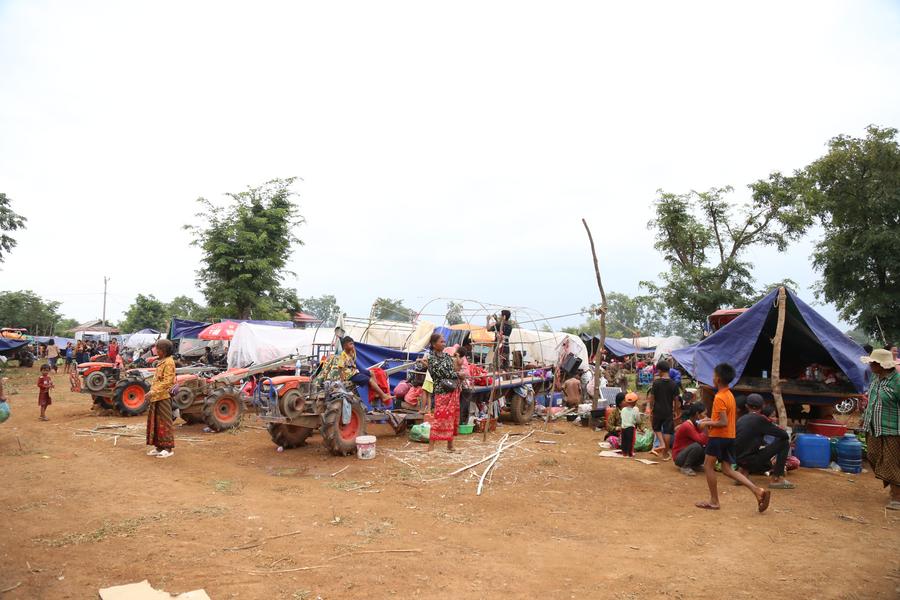Khaosod newspaper reported that at 1:30 p.m. on July 29 at the Government House, Acting Prime Minister of Thailand Phumtham Wechayachai updated the situation of the Thai - Cambodian border conflict.
Mr. Phumtham said that the Thai government has shown goodwill and made the most efforts to end clashes in the border area as soon as possible.
Through negotiations, the two sides reached a ceasefire agreement in the spirit of putting the interests of the people and national sovereignty first. This is also the common expectation of the international community to quickly restore peace to the people of the two countries. Thailand is committed to complying with the results of the negotiations held in Putrajaya, Malaysia on July 28.
However, Thailand accused the Cambodian army of violating the ceasefire agreement when using weapons to attack Thai forces in many areas. This forced the Thai army to respond to protect sovereignty and people's lives.
The Thai government has sent its protest to the presidents of ASEAN, China and the US - who attended and witnessed the negotiations - to inform that the violation came from Cambodia.
The Thai government has now asked all armed forces to maintain their positions, be ready to protect sovereignty and the safety of the people. Thailand insists that national sovereignty cannot be violated under any circumstances.

Earlier, on the same morning, there were exchanges between military commanders of the two countries to seek solutions to the current situation.
Accordingly, the two sides agreed on a 7-point plan to reduce the escalation of tensions along the common border after recent clashes.
The plan's main measures include an immediate ceasefire, stopping troop increases and movements, and banning shelling of civilians.
A joint coordination group of 4 members from each side will be established to resolve all arising issues and facilitate communication.
Thailand also expressed its readiness to resume higher-level negotiations as agreed, with the aim of ending the conflict and avoiding further damage to civilians and soldiers.
Acting Prime Minister Phumtham Wechayachai affirmed that the ceasefire agreement between Thailand and Cambodia does not mean an end to the conflict, and called for further dialogue under the leadership of the two armies.
Speaking before the cabinet meeting in the morning, Mr. Phumtham explained: "Shooting is just stopping military activities, not resolving the conflict. Unconditional ceasefire means that both sides will agree on the time of stopping fire, then continue negotiations through existing mechanisms, with the army playing a leading role".
Meanwhile, the Khmer Times reported that although 1 hour before the ceasefire took effect at 0:00 on July 29, the Thai army was still firing shots into Cambodian territory, both in Oddar Meanchey and Preah Vihear provinces, by 0:30 on July 29, all frontline positions were calm, with no gunfire between the two sides.
Cambodia's daily newspaper reported that at 7:31 a.m. on July 29, Cambodia's Oddar Meanchey province "is going through a period of peace, with local people returning to their daily lives when the ceasefire between Cambodia and Thailand takes full effect".








